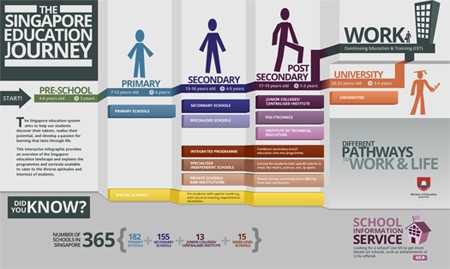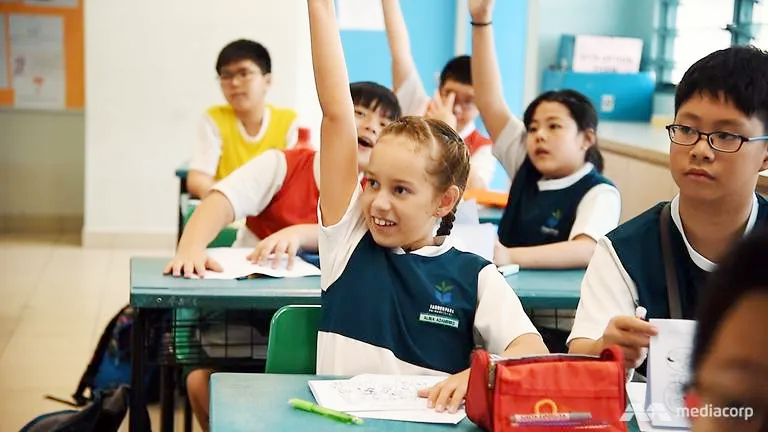Picture credits to ChannelNewsAsia
We talked to some expatriates recently and they wanted to understand more the education options in Singapore for their children. So... there you go!
As Singapore is open to foreign investments and known as an education hub among the ASEAN region, we have a sizeable pool of international students. If you are intending to settle your children into the education system here, there are a number of options.
The public education system is regulated by the Ministry of Education (MOE) and includes pre-school to polytechnics and autonomous universities. The private schools are regulated by the Council of Private Education established by MOE.
1. Enrol into an international or boarding school
The most intuitive option would be to enrol into an international or boarding school. Some of the boarding schools in Singapore include:
a) Hwa Chong Institution Boarding School (http://www.hcibs.edu.sg/)
b) United World College South East Asia (https://www.uwcsea.edu.sg/)
c) Raffles Institution (http://www.ri.edu.sg/admissions/international-students-and-returning-singaporeans)
d) Anglo-Chinese School (https://www.acsindep.moe.edu.sg/)
2. Integrate into the MOE schools – Primary and Secondary Schools and Junior Colleges
Singapore is known for its extensive and rigorous education system that is benchmarked against established education systems. Starting at the age of 4, children attend pre-school. The next milestone is entering a primary school at the age of 7 for 6 years. Afterwhich, students are streamed into Secondary schools at the age of 13 based on Primary School Leaving Examinations (PSLE) results. At the age of 16, students undertake the Cambridge GCE ‘O’ or ‘N’ levels. Some of them move on to take the GCE ‘A’ levels and some move into tertiary education such as the polytechnics and universities..

Source: Ministry of Education (http://www.moe.gov.sg/education/)
For admission into the MOE schools which includes primary and secondary schools and junior colleges, you need to go through the International Student Admissions process. Children are required to have a Student’s pass. This is awarded in accordance to the guidelines by the Immigration Regulations. You may find out more through the MOE website (https://www.moe.gov.sg/international-students)
3. Pursue Degree and Diploma programmes from the private schools
To position Singapore as a reliable provider of private education, all private schools are regulated through the Council of Private Education (CPE). The regulations seek to protect the rights of private students by ensuring that the private school has the necessary resources to run the diploma and degree programme. You may enrol directly with Do remember to check the CPE website to ensure that the private school you plan to enrol into is listed as a legitimate provider! The website also provides useful guides for students to take note when they are looking for a school. Available in 3 languages – Chinese, Bahasa Indonesia and Vietnamese.
For more information about education needs for expatriates, you may take a look at the Singapore Expats site (https://www.singaporeexpats.com/guides-for-expats/education-studying.htm)
For more information about Private Education Institutions in Singapore, head over to (https://www.ssg.gov.sg/cpe/pei.html) for more details.
Check OpenSchoolbag's range of Singapore assessment books to know more about Singapore's curriculum:
Don't miss out on our articles! You will find them useful somehow, from parenting to exam preparation tips to best deals! Subscribe to our newsletter to receive updates on articles and best deals!


